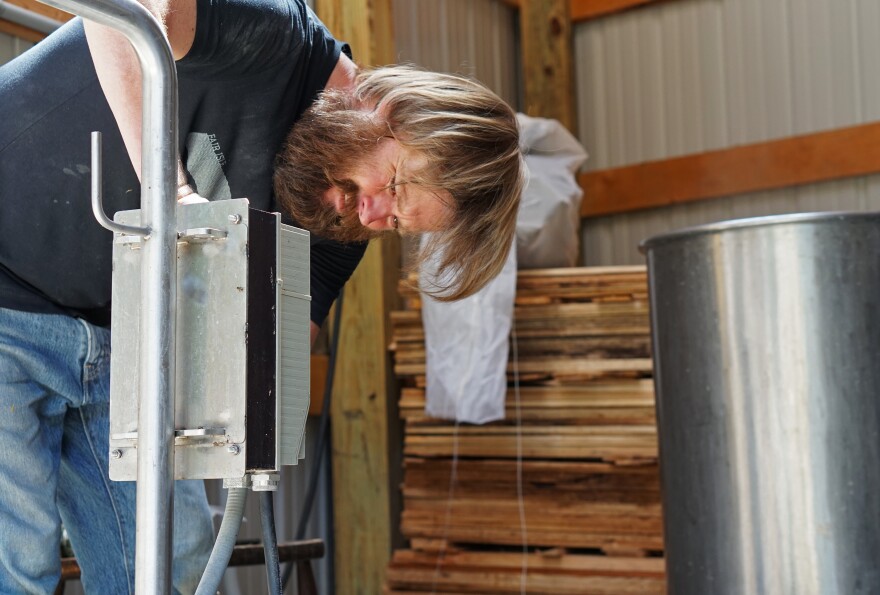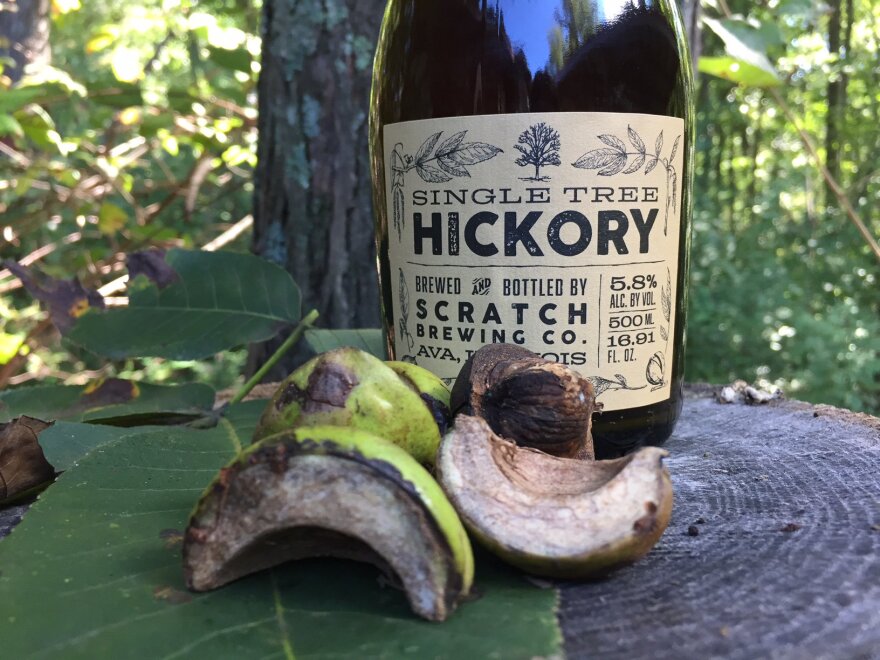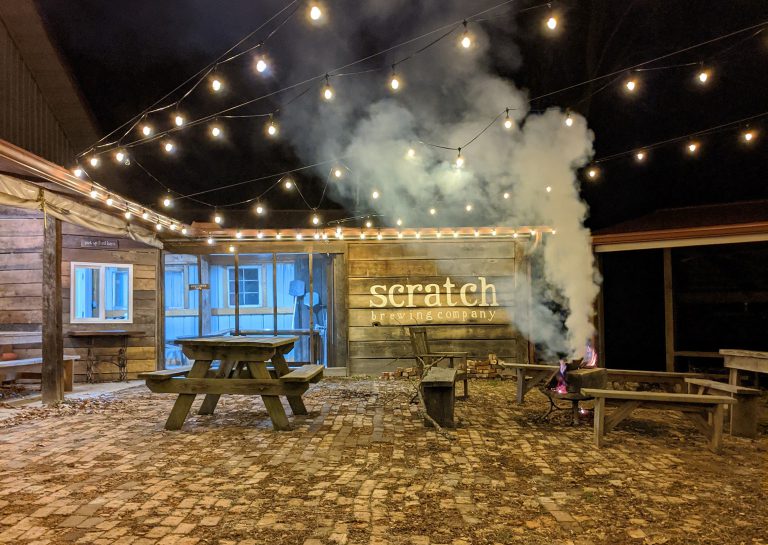Aaron Kleidon kneels to stoke a campfire under a massive copper kettle, as hundreds of gallons of molasses-colored brew churn and bubble inside.
He shakes a few handfuls of dried sweet clover into a cotton sack, which will steep in the beer and infuse it with a subtle vanilla flavor.
Like all of the beers produced at Scratch Brewing Co., this soon-to-be stout relies on hyperlocal ingredients foraged from the surrounding forest in Ava, Illinois, about 80 miles southeast of St. Louis. Nestled within a patchwork of corn and soybean fields, the microbrewery has received critical acclaim for its unusual creations, which range from tangy beet-flavored sours to chanterelle mushroom ales.
“The challenge is getting the exact flavor you smell in the forest into the beer and finding which combinations of plants get you there,” said Kleidon, the brewery’s co-owner.

Since Scratch opened its doors in 2013, Kleidon estimates he and co-owner Marika Josephson have used at least 150 different plants in their beers, including sassafras, fig leaves and dandelions.
Many grow wild on the 75-acre forest adjacent to the property, which Kleidon’s parents have owned for more than two decades. The brewers have cultivated others from wild seeds, like maypop, a trailing native vine that produces egg-shaped passionfruit.
“We knew from the beginning that we wanted Scratch to be a place that was exploring a sense of place,” Josephson said. “What does it mean to make beer that tastes like southern Illinois, that uses ingredients that are from here?”

Despite its out-of-the way location, the scrappy little brewery has developed a loyal following and garnered national attention, earning a spot as a semifinalist for a James Beard Award earlier this year.
Supporting farmers
Scratch Brewing Co. produces new beers every week or so — a labor-intensive process that begins with grinding several hundred pounds of grain at 7 a.m. The grain, which comes from Sugar Creek Malt in central Indiana, is then steeped in hot water inside wooden barrels, producing a sweet liquid.
On a recent “brew day,” Kleidon tended to the kettle of boiling, malty brew while Josephson hurried to a hand-built brick oven to check on trays of roasting hickory bark.
“You can see these pieces here are getting that nice, dark, chocolatey brown; that’s exactly what we want,” Josephson said, flipping the slabs of bark. “We almost want this to be smoking by the time we put it in the beer.”

Through trial and error, they discovered the bark, which naturally peels away in sheets from shagbark hickory trees, makes the beer taste like toasted marshmallows.
But for these brewers, the work is about more than dreaming up new flavor combinations.
All of the ingredients are either grown on their farm, foraged from the surrounding forest or purchased from local farmers, including the hops and grain. Though it can be difficult to source everything they need, Josephson said, growing or purchasing the ingredients locally is more sustainable than shipping them thousands of miles.
To fill in the gaps, the brewery grows some ingredients on its five-acre property, which includes a rambling herb garden, high tunnel greenhouse and goat paddock (home to Shelly, Wheezy, Zelda and Brown Goat).

Kris Pirmann, Scratch’s full-time farmer, points out the different herbs in the garden, including lovage, anise hyssop and elecampane, a medicinal herb with a camphor-like aroma. “Working here forces you to be creative and think about what you can grow that’s unique or how you can use something that’s old in a unique way,” he said.
Needless to say, the brewery’s owners are serious about supporting local agriculture.
Over the past decade, Josephson said, “farmhouse beer” has become a loosely used marketing term — and often such beers have no connection to actual farms.

“If somebody’s picking up a bottle because they think that they’re supporting a farm, but they’re not, that’s where I think there’s a problem,” Josephson said. “We spend more money to have a farmer on staff, to put in a greenhouse and support these ingredients that we’re growing here. That’s why our beer costs a little bit more. It’s supporting this whole network that we’re trying to develop and sustain here.”
Though the brewery, which sells most of its beer in house, has lost business during the pandemic, she added, having a strong connection with the surrounding community has helped them stay afloat.
For Kleidon, who grew up in Ava, building a more robust local economy is particularly important.
“We know exactly the person that’s going to benefit when the money gets spent,” he said. “Not only do we get the best possible product, we’re also building a community.”
Follow Shahla on Twitter: @shahlafarzan

